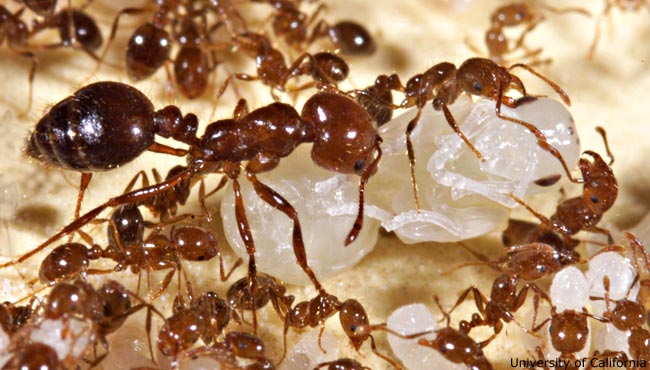Ants Can Smell Death

When an ant dies, its nestmates quickly pack it off. That way, the risk to the colony of infection is reduced.
But how do they know its dead?
Theory has held that dead ants release chemicals created by decomposition (such as fatty acids) that signal their death to the colony's living ants.
But now entomologists working on Argentine ants — vicious fighters that are highly territorial — provide evidence for a different mechanism for what's behind necrophoresis, or the removal of dead nestmates from colonies.
All ants, both living and dead, have the "death chemicals" continually, but live ants have them along with other chemicals associated with life — the "life chemicals." When an ant dies, its life chemicals dissipate or are degraded, and only the death chemicals remain.
"It's because the dead ant no longer smells like a living ant that it gets carried to the graveyard, not because its body releases new, unique chemicals after death," said study team member Dong-Hwan Choe, a graduate student at University of California, Riverside.
The finding is detailed online this week in the early edition of the Proceedings of the National Academy of Sciences.
Sign up for the Live Science daily newsletter now
Get the world’s most fascinating discoveries delivered straight to your inbox.
"Understanding the exact mechanism of ant necrophoresis will help researchers develop a more environmentally friendly pest management strategy by which we can achieve results with smaller amounts of insecticide," Choe said. "A recent study on Argentine ants that we did in the lab indicated that nestmates can efficiently distribute slow-acting and non-repellent insecticides among themselves via necrophoresis. When an ant exposed to an insecticide dies in the nest, other ants carry its body around, with the insecticide transferring easily from the corpse to healthy ants."
- Video: Ants Gets Strange Parasite
- Gallery: Ants of the World
- Why Ants Rule










